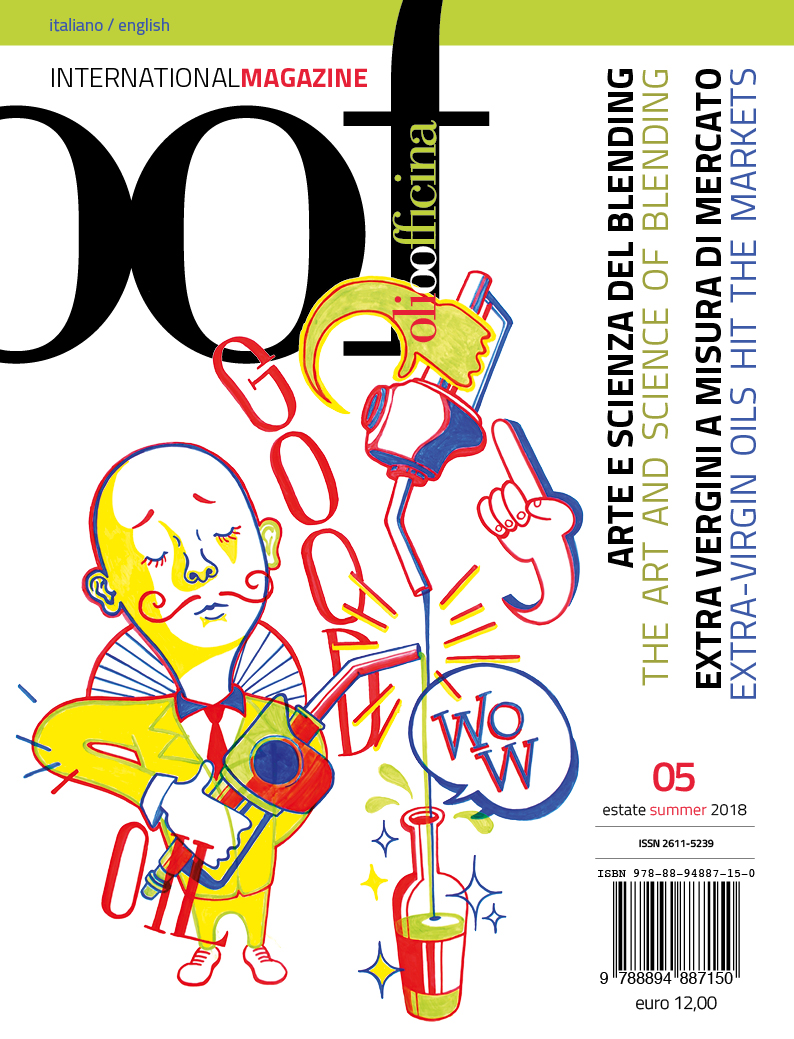
We may have managed to tame the wild olive over the millennia and transform it into oil, but making oil as nature intended is no longer our task these days. For that matter leaving an olive oil’s distinctive style to chance is not a viable solution. It’s better to reshape the oil in our own image – without appearing pretentious, obviously, but with the conscious pride that comes from pouring all one’s efforts into personalising the fruit of your labour, making a “unique” bottled oil, since it is designed to appeal to the market and whoever, in whatever corner of the planet, is going to be its consumer.
Basically, we have to deal with a complex and changing situation, attempt to somehow adapt or influence it, perhaps comply with it at times, but always contributing our own personal skills and knowledge.
Extra virgin olive oils are not provided ready-made by Mother Nature: they’re the result of our own patient and professional work. In the past this simply served the purpose of satisfying a dietary or culinary need, while today the goal is to make unique and distinct oils, made-to-measure for the consumers and market, fulfilling even the most hedonistic demands.
Having accepted this new condition (which in no sense means giving in to the petty demands of consumerism), all that’s left to do is enhance the distinctive features of the oils through a meticulous blending process, bearing in mind – to avoid any misunderstanding – that a fine quality oil combines both nutritional and health value as well as the capacity to appeal to the senses. This, too, is the goal of a successful blend: to combine the pleasure an oil provides in terms of aroma, flavour, texture, and flow with nutritional and health properties.
However, it’s a serious mistake to create a blend without making any effort to define or systemise it. Selecting oils, identifying them from among the various cultivars or origins, and mixing them together to obtain a high quality extra virgin (or even a good, democratic entry price oil) without offering instructions for the different stages of the creation process is unacceptable – it’s wrong. Instead, a method needs to be created and shared, and made available for all to use. Defining a blend means deciding not to restrict the process to an unspecified and markedly artistic or artisan process, under the delusion that it all starts with the creative flair of the blender. That isn’t so. Rather than art, blending is above all a science.
And thus we come to the deeper meaning of this editorial: the gnosiological aspect of blending, laying the foundations so that everyone can understand how it develops and works. Identifying the basic criteria needed to create the blend, and the consequent operative methods, is the next step. If sensory analysis of oils has been successfully defined with specific and universally recognised terminology, the same can happen with blends. Today, everything can be taught. There are schools and academies where you can attend courses and learn exercises in writing to edit articles, song lyrics, librettos for operas, scientific essays, narrative and lyric composition, scriptwriting for theatre, cinema, and television, just as you can be taught to compose music at a conservatory, or to paint and sculpt in art schools. The fact that the need to define and teach blends remains unacknowledged is a serious error of perspective. It is no longer sufficient to produce oil with the goal of quality for its own sake. Production has to serve the demands of the market, staying ahead of trends if possible, just like the world of fashion.
This is not a violation of product simplicity and purity, but bringing mankind’s ancient move from the wild to the cultivated olive full circle, to the benefit of all.

The editorial signed by Luigi Caricato is an excerpt from the fifth issue of the quarterly paper magazine OOF International Magazine. Buy the fifth issue of the magazine or subscribe HERE.
To comment you have to register
If you're already registered you can click here to access your account
or click here to create a new account


Comment this news